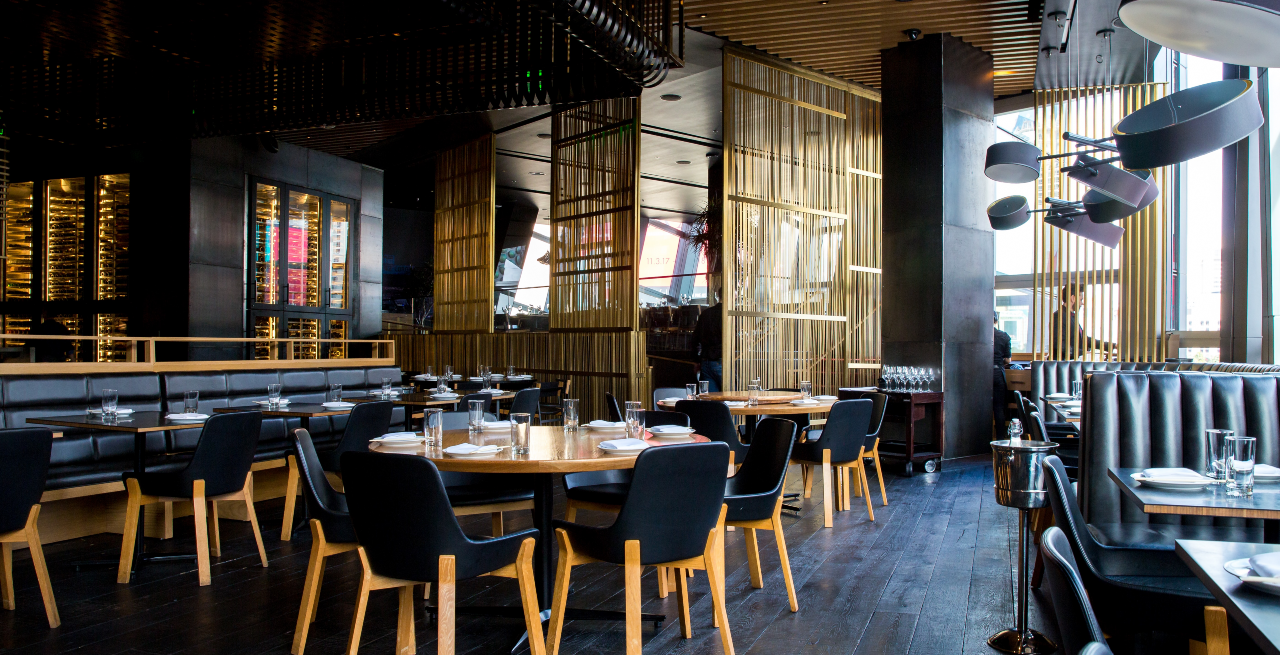Tech Is Revolutionizing Restaurants’ Quality Audits
4 Min Read By Paul Damaren
Think of what your restaurant can accomplish with quality auditing. First (and most importantly), you’ll maximize quality and safety while minimizing risk. Audits can also help brands identify (and fix) areas of non-compliance, as well as spot (and address) potential threats. Collecting and analyzing real-time data allows operators to make more informed decisions that can optimize operations, increase efficiencies, boost revenue, reduce waste, cut costs, and drive restaurant growth. These significant benefits make it clear that regular quality auditing is a must for all restaurants.
Unfortunately, some restaurant brands are still using antiquated manual methods to conduct quality audits, which is problematic on many levels. Manual processes, like paper records and Excel spreadsheets, can’t provide a comprehensive view of an entire organization. This approach doesn’t allow operators to spot trends or patterns because they aren’t getting real-time, integrated data using paper files or disjointed spreadsheets. Manual systems are often error-prone and full of redundancies and inconsistencies.
Luckily, the tide is turning. Restaurants are, increasingly, relying on tech solutions to audit in a different (and far superior) way. The benefits of using tech for auditing include:
- Getting holistic views. Tech tools, like SaaS-based quality audit software, provide a more comprehensive view of an organization so operators can clearly see what’s happening. SaaS-based software can provide an enterprise-wide view and drill down by location, which can be especially valuable if certain units are consistently receiving low scores when audited. SaaS software provides insights that help brand leaders recognize and fix any issues to ensure continuous improvement over time. SaaS offers many benefits that manual systems can’t provide, including real-time data analysis, error reduction, flexibility, scalability, increased collaboration, and greater transparency.
- Accessing real-time data for more informed decision making. Tech solutions collect and analyze data, which allows brand leaders to make more informed, data-driven decisions to optimize their operations. For instance, when they identify and remediate wastage in their restaurant, they’ll save food, time, money – and boost their bottom line. Additionally, this data can pinpoint inefficiencies, which is especially valuable as restaurants continue to recover from years-long staffing shortages.
- Managing complex data sets. Operators can’t fix problems if they’re not aware of them. Therefore, restaurants should leverage AI and machine learning – and their advanced algorithms – to identify data patterns. Then, operators can use this information to identify risks, spot trends, and determine appropriate corrective actions. If audits are showing that a location is making mistakes, their staff should receive additional training. If auditors are finding bottlenecks in internal processes, managers can make changes to increase productivity. Manual processes don’t provide the visibility, transparency, and insights necessary to spot trends and adjust accordingly.
- Identifying vulnerabilities. The parameters of restaurant safety have evolved, and it’s no longer enough to just worry about traditional safety and quality risks. Now, brands must also anticipate newer vulnerabilities, like cyberbreaches putting sensitive information – like customers’ credit card information and restaurants’ financial records – at risk. Continued supply chain disruptions could result in stalled deliveries to your restaurant. What if staffing shortages or transportation delays meant that your produce, dairy, or proteins were held for too long on hot trucks, increasing the risks of foodborne illness from unsafe holding temps? Predictive analytics allow brands to determine, identify, and address a wider range of potential threats before they happen, to keep restaurants (and guests) safer.
- Standardizing processes. Tech solutions allow brands to standardize processes, ensuring that all data is collected (and analyzed) in the same way. Better, more consistent audits can help protect brand reputation and customer safety, whether your restaurant brand has two locations or hundreds.
- Improving collaboration. The cloud is making it easier and more accurate to collaborate with teams across town, across the country, and around the globe. When everyone in your organization can access the same real-time data from a central location, teams can work more quickly, accurately, and efficiently. Additionally, the cloud reduces the time, money, hassle, errors, and redundancies that restaurants experienced with manual auditing processes. The cloud’s advanced security features, which include data encryption, two-factor authentication, and role-based access levels, protect your data and provide peace of mind.
- Understanding data better. Data visualization helps operators better understand their data so they can take immediate corrective action, as necessary. Ground-breaking technologies help organizations identify risks, determine what’s causing certain problems, and pinpoint areas of non-compliance. Then, leaders can use these insights to fix the issues, doing things like increasing training, switching to more safety-conscious suppliers, adjusting internal processes, hiring additional staff, etc., to improve quality, safety, and compliance.
Tech is revolutionizing the way we audit, improving and automating the auditing process. Since tech tools provide more holistic, real-time views of essential data, brand leaders can make more informed decisions to maximize safety and mitigate risks. Today, we can (and should) leverage innovative technologies to boost efficiency, transparency, and accuracy. Additionally, we can better identify data patterns to identify risks and trends and use these insights to take appropriate corrective actions. None of these things would be possible with our old clipboards and paper-based notes.
Advances in technology – including SaaS software, predictive analytics, artificial intelligence (AI), machine learning, and the cloud – are changing the auditing landscape. The future of quality audits is tech-based, and because of this, our restaurants (and guests) will be much safer moving forward.


